Nucleus
The nucleus is a membrane-bound organelle found in eukaryotic cells. It serves as the control center of the cell, housing the cell's genetic material and coordinating the cell's activities.
Structure of the Nucleus
The nucleus is typically spherical or oval in shape and is surrounded by a double membrane called the nuclear envelope. Pores in the nuclear envelope allow for the passage of molecules such as RNA and proteins. Inside the nucleus, the genetic material is organized into structures called chromosomes, which consist of DNA and associated proteins.
Functions of the Nucleus
The nucleus carries out several important functions, including:
- Genetic Control: The nucleus contains the cell's genetic material, which is responsible for determining the cell's characteristics and directing its activities.
- Cellular Reproduction: During cell division, the nucleus plays a key role in the replication and distribution of genetic material to ensure that each new cell receives the correct set of chromosomes.
- Ribosome Synthesis: The nucleus is involved in the production of ribosomes, which are essential for protein synthesis.
- Regulation of Gene Expression: The nucleus regulates the expression of genes, determining which genes are turned on or off in response to the cell's needs.
Study Guide
When studying the nucleus, consider the following key points:
- Describe the structure of the nucleus, including its membrane, pores, and contents.
- Explain the roles of the nucleus in genetic control, cellular reproduction, ribosome synthesis, and gene expression regulation.
- Compare and contrast the structure and function of the nucleus in eukaryotic and prokaryotic cells.
- Discuss the importance of the nucleus in maintaining the integrity and function of the cell.
Understanding the nucleus is crucial for grasping the fundamental processes of cellular function and genetics. Be sure to review the structure and functions of the nucleus thoroughly to gain a comprehensive understanding of this essential organelle.
.◂Science Worksheets and Study Guides Seventh Grade. Cell Processes

 Activity Lesson
Activity Lesson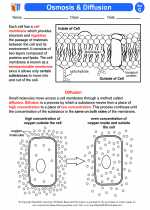
 Worksheet/Answer key
Worksheet/Answer key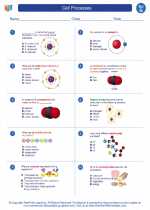
 Worksheet/Answer key
Worksheet/Answer key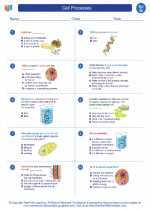
 Worksheet/Answer key
Worksheet/Answer key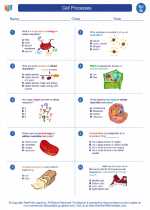
 Worksheet/Answer key
Worksheet/Answer key
 Vocabulary/Answer key
Vocabulary/Answer key
 Vocabulary/Answer key
Vocabulary/Answer key
 Vocabulary/Answer key
Vocabulary/Answer key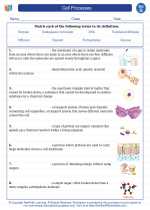
 Vocabulary/Answer key
Vocabulary/Answer key
 Vocabulary/Answer key
Vocabulary/Answer key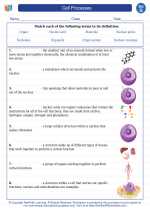
 Vocabulary/Answer key
Vocabulary/Answer key
 Vocabulary/Answer key
Vocabulary/Answer key
